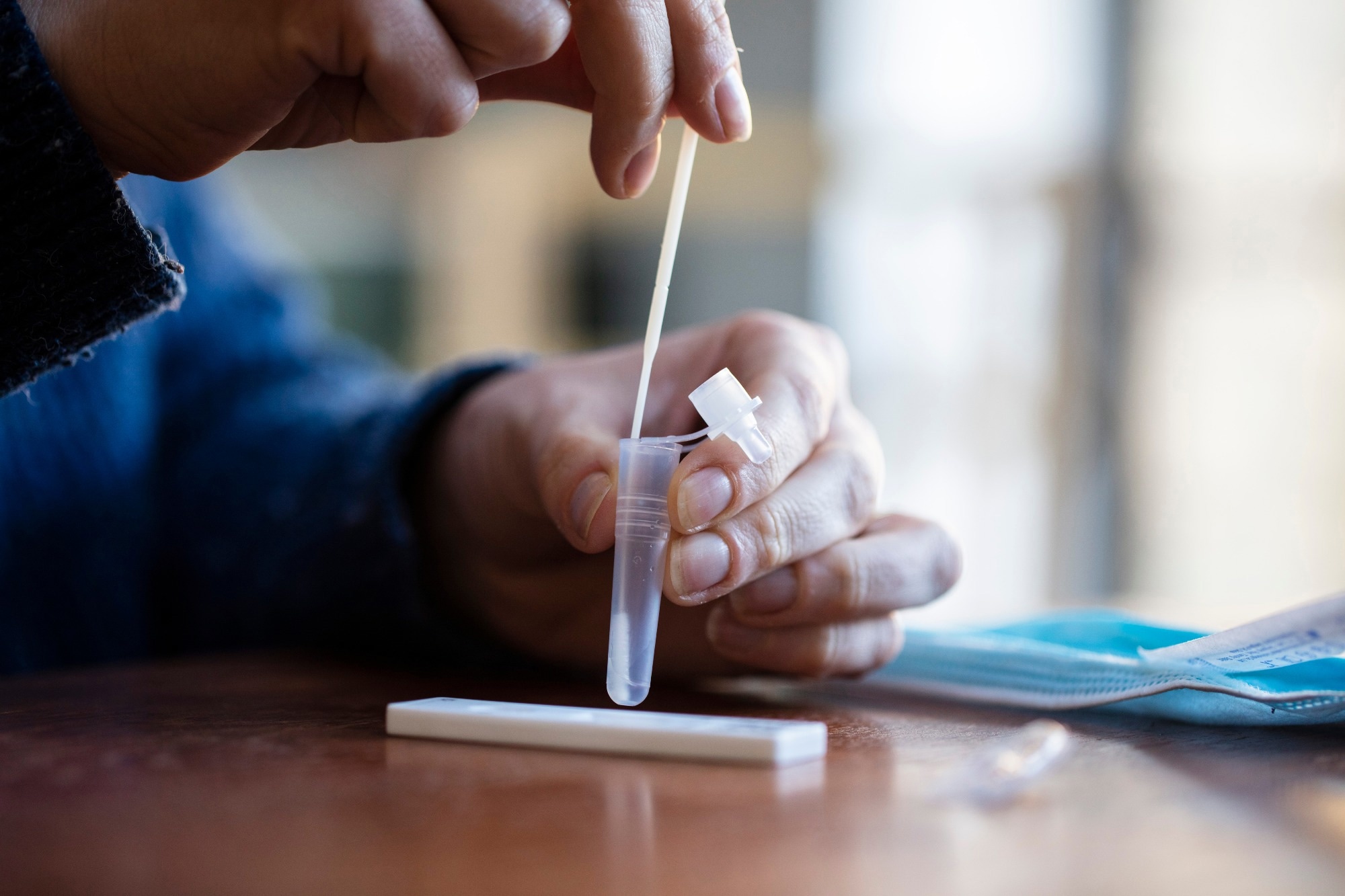Individuals with comorbidities, particularly type 2 diabetes (T2D), were considered the most vulnerable subgroups during the coronavirus disease 2019 (COVID-19) pandemic caused by severe acute respiratory syndrome coronavirus-2 (SARS-CoV-2).
 Study: COVID-19 patients with type 2 diabetes: a prospective cohort study. Image Credit: Ink Drop/Shutterstock.com
Study: COVID-19 patients with type 2 diabetes: a prospective cohort study. Image Credit: Ink Drop/Shutterstock.com
Background
Patients with T2D account for 9.5% of severe SARS-CoV-2 infected patients and 16.8% of COVID-19-related deaths. This group of patients was more prone to require hospitalization and intensive care due to COVID-19. Several factors have been identified that increase the risk of severe infection and mortality rates.
Some of these factors are endothelial dysfunction, hypercoagulation due to overexpression of prothrombotic factors, reduced respiratory function, upregulation of inflammatory cytokines, pre-existing insulin resistance, and chronic diseases.
Even though there has been a high COVID-19 vaccine coverage globally, very few studies have determined a correlate of protection to indicate the efficacy of immunization in high-risk subgroups.
Since patients with T2D are at a high risk of severe SARS-CoV-2 infection, it is imperative to understand the link between anti-SARS-CoV-2 antibody levels and COVID-19 outcomes.
If this association is established, effective strategies based on booster vaccination could be formulated to protect individuals belonging to this high-risk group.
About the study
The current multicentre, prospective cohort study investigated whether anti-SARS-CoV-2 spike antibodies could be used as a correlate of protection against hospitalization of T2D patients. The effect of pre-existing organ damage on anti-SARS-CoV-2 antibodies was also assessed.
For this study, participants were enrolled from five Austrian hospitals and admitted between August 1, 2021, and April 10, 2022. All participants tested positive for COVID-19 in a polymerase chain reaction (PCR)-based assay.
Blood samples were collected upon hospital admission. Participants hospitalized during the study period and continued beyond the timeframe were excluded.
Patients were classified as diabetic, and COVID-19 vaccinated. The vaccinated individuals received either single or two doses of approved COVID-19 vaccine.
Besides diabetes, other factors that enhance the risk of severe infection are age and obesity. An elevated mortality risk was associated with the prevalence of hypercoagulation, inflammation, and mechanical obstruction. The mortality rate also varied based on the virulence of the SARS-CoV-2 strains.
This study assessed serum creatinine, anti-SARS-CoV-2 spike antibodies, and NT-proBNP levels.
Creatinine levels were defined to be elevated when it was above 1.2 mg/dl in men and over 0.9 mg/dl in women. Similarly, NTproBNP levels were deemed to be elevated over 125 pg/ml.
Study findings
1,254 hospitalized patients were screened for this study, among which 1,152 were recruited. It must be noted that anti-SARS-CoV-2-spike antibody levels were estimated for all the participants, whereas NT-proBNP and creatinine were measured for only 1,046 patients due to inadequate residual samples.
In this study cohort, 118 patients died, 165 patients required an intensive care unit admission, 587 patients supplementation of oxygen, and 47 patients were subjected to endotracheal intubation. A total of 275 participants in the study cohort had a history of diabetes or were diagnosed during their hospital stay.
Low anti-SARS-CoV-2 spike antibody levels during hospital stay were strongly associated with elevated endotracheal intubation, admission to intensive care units, high rates of in-hospital mortality, and oxygen administration in T2D patients. The higher mortality rates were attributed to increased rates of hyperglycemia.
Previous studies have shown that increased glucose concentration in monocytes of T2D patients enhances the expression of the pro-inflammatory cytokines, which is strongly associated with the COVID-19 cytokine storm.
Consistent with the findings of this study, previous studies have also indicated high mortality rates in diabetic patients compared to non-diabetic patients. It must also be noted that the majority of patients with T2D also possess other serious comorbidities, including renal and cardiovascular diseases.
The T2D patients recruited in the present study were significantly older and with higher BMIs. Furthermore, this study cohort exhibited significant rates of coronary artery disease, hypertension, heart failure, renal disease, and cerebrovascular disease.
When patients were stratified based on elevated creatinine or NTproBNP levels, no significant changes in mortality rates between diabetic and matched, non-diabetic patients were observed.
This finding indicated that diabetic patients might not be at a higher mortality risk linked to COVID-19 due to diabetes alone but due to the cumulative effect of multiple factors, including older age, prevalence of serious comorbidities, and obesity.
A higher anti-SARS-CoV-2 spike in antibody levels could reduce the mortality rates in high-risk mortality groups due to severe SARS-CoV-2 infection. Compared to non-vaccinated patients, vaccinated T2D patients exhibited better COVID-19 outcomes.
Conclusions
The current study demonstrated that anti-SARS-CoV-2 spike antibody levels during hospital admission were inversely correlated with endotracheal intubation, intensive care admission, oxygen administration, and in-hospital mortality in hospitalized T2D patients with COVID-19.
It also showed that patients with T2D can be protected from adverse COVID-19 outcomes by providing booster vaccinations based on antibody tiers.